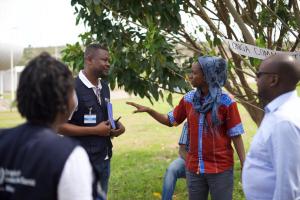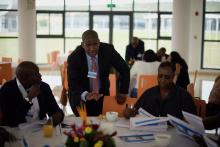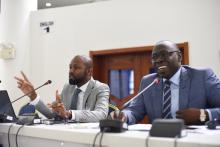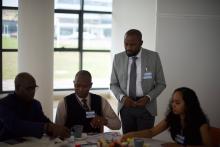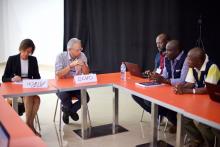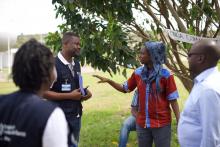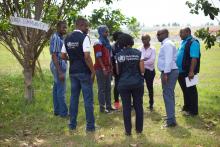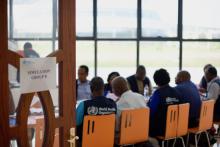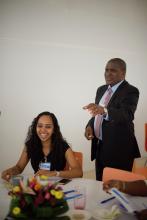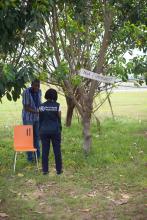Getting ready for health emergencies in Africa
Earlier this year Nigeria experienced its largest Lassa fever outbreak ever. For Samuel Mutbam it was a baptism by fire. As WHO’s Deputy Incident Manager he was a key member of the coordination team and often worked for 15 hours a day, with little time to eat.
The first few days of the response were particularly challenging and one of Mutbam’s responsibilities was to ensure that everyone worked well together within a high-pressure environment.
“Looking back, there are so many things I would have done differently,’ he said. “Now I understand that it’s normal to have a difficult initial response phase as the team learns to work together. Next time, I will establish clear roles and responsibilities early on, and make sure everyone is in tune with the planned objectives and working in one direction from the start.”
Mutbam was one of 51 participants from 33 WHO Country Offices across the African region who recently participated in WHO’s Public Health Pre-Deployment Training in the Brazzaville area from 24-29 September 2018.
The intensive six-day course brought together staff and partners from across the region to develop their capacity to support countries during the critical phases of health emergencies.
The first part of the course focused on theory. The second part was a simulation exercise, with participants responding to two disease outbreaks within a fictitious African country.
“In emergencies, you have to hit the ground running,” says Doctor Ibrahima Socé Fall, WHO’s Regional Emergencies Director for Africa. “Having the theory doesn’t mean you are ready. During the simulation exercise, staff practice in a safe environment so they can make mistakes and learn – rather than make mistakes in a hotspot.”
During the course, participants learned about humanitarian principles, managing epidemics, WHO’s role in emergencies and key activities such as contract tracing, clinical management and country preparedness.
There are more than 100 health emergencies in the African region annually.
“For the WHE Programme, this is a flagship training,” said Heini Utunen, who organized the simulation exercise. “This is a big training with all relevant staff and new staff from AFRO participating, for a ready, willing and able workforce for emergencies. As AFRO is a WHE priority region for outbreaks and health emergencies, it’s a natural choice to run this type of training here.”
After having completed the training, Mutbam said one of the many things he had learned was the importance of preparedness and operational readiness.
Armed with WHO’s Country Office Readiness Checklist, he said, “I’m going to go back to Nigeria and take a proactive approach to help get the Country Office ready.”
Support from the Office of US Foreign Disaster Assistance (OFDA) and the Russian Government made possible the development of course materials and the delivery of the session itself.



